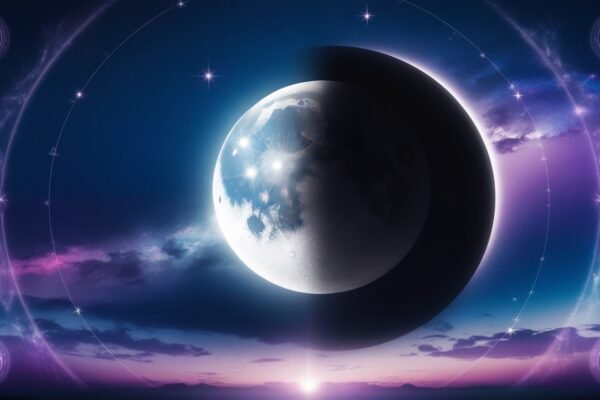Astrology has transcended its ancient roots to become a thriving cultural phenomenon in 2025, blending traditional wisdom with modern technology and psychological insights. As we navigate an increasingly complex world, millions turn to the stars for guidance, self-discovery, and a sense of cosmic connection.
Affiliate Disclosure: This post contains affiliate links. If you make a purchase through these links, we may earn a commission at no additional cost to you. This helps support our site and allows us to continue providing valuable content.
The Digital Revolution of Celestial Wisdom
The astrology landscape in 2025 looks vastly different from even five years ago. AI-powered astrology apps now generate hyper-personalized readings that go beyond sun signs, incorporating precise birth times, locations, and even local astronomical events. These sophisticated platforms analyze planetary transits in real-time, sending notifications when Mercury goes retrograde or when Jupiter enters a new house in your chart.
Virtual reality experiences allow users to literally walk through their birth charts, exploring planetary relationships in three-dimensional space. Imagine standing in the center of your astrological houses, watching as planets move through them in accelerated time, understanding how celestial movements influence different life areas.
Beyond Sun Signs: The Rise of Nuanced Astrology
While daily horoscopes remain popular, 2025 has seen a dramatic shift toward more comprehensive astrological literacy. People now casually discuss their rising signs, moon phases, and planetary aspects with the same familiarity they once reserved for their sun signs alone.
This deeper understanding has led to more nuanced applications. Career counselors integrate astrological timing into their guidance, suggesting optimal periods for job changes based on Saturn returns or Jupiter transits. Relationship coaches examine synastry charts to help couples understand their dynamic patterns. Even financial advisors acknowledge lunar cycles when discussing investment strategies with astrology-minded clients.
The Science-Spirituality Bridge
Perhaps the most significant development in 2025’s astrological landscape is the growing dialogue between astrologers and researchers. While astrology remains outside mainstream science, some psychologists and data scientists have begun studying its effects through the lens of meaning-making and pattern recognition.
Studies examining the placebo-like benefits of astrological consultation show that believers often experience reduced anxiety and increased self-reflection after readings. This has led to a new field of “therapeutic astrology,” where certified practitioners combine astrological symbolism with counseling techniques.
Cultural Integration and Corporate Cosmos
Astrology has firmly embedded itself in corporate culture. Companies now offer astrological team-building workshops, analyzing group dynamics through composite charts. Some progressive firms even consider astrological timing for product launches and major decisions, viewing it as another data point in their strategic planning.
The wellness industry has particularly embraced astrological integration. Yoga studios offer classes tailored to current planetary energies, while spa treatments align with lunar phases. Nutritionists create meal plans based on your sun sign’s elemental nature, and fitness apps recommend workout routines that match your Mars placement.
The Shadow Side: Navigating Cosmic Overwhelm
With astrology’s mainstreaming comes new challenges. “Cosmic anxiety” has emerged as people become overly dependent on favorable transits before making decisions. Mental health professionals warn against using astrology to avoid personal responsibility or to justify harmful behaviors.
The commercialization of astrology has also sparked debates within the community. Traditional astrologers worry that depth and nuance are being sacrificed for marketability, while others celebrate the accessibility that simplified astrology brings to newcomers.
Looking Forward: The Future Written in Stars
As we move through 2025, astrology continues to evolve. Quantum astrology explores connections between celestial mechanics and quantum physics. Environmental astrologers examine planetary cycles in relation to climate patterns. Political astrologers analyze national charts to understand global trends.
The integration of artificial intelligence promises even more personalized experiences. Soon, AI astrologers may provide moment-by-moment guidance, interpreting the cosmic weather as dynamically as meteorologists forecast earthly conditions.
Finding Your Place in the Cosmic Dance
Whether you’re a skeptic or a true believer, astrology in 2025 offers something valuable: a framework for self-reflection and a language for discussing life’s complexities. In an era of rapid change and uncertainty, the ancient practice provides both stability through its cyclical nature and adaptability through its evolving interpretations.
The stars may not control our destiny, but they offer a mirror for understanding ourselves and our place in the universe. As we continue through 2025, astrology remains what it has always been—a tool for meaning-making, a source of comfort, and a reminder that we are all part of something infinitely larger than ourselves.
In this age of technology and tradition, astrology proves that humanity’s oldest questions about identity, purpose, and connection remain as relevant as ever. The only difference now is that we have more sophisticated tools to explore these timeless mysteries, blending ancient wisdom with modern innovation in our eternal quest to understand the cosmos and our place within it.



